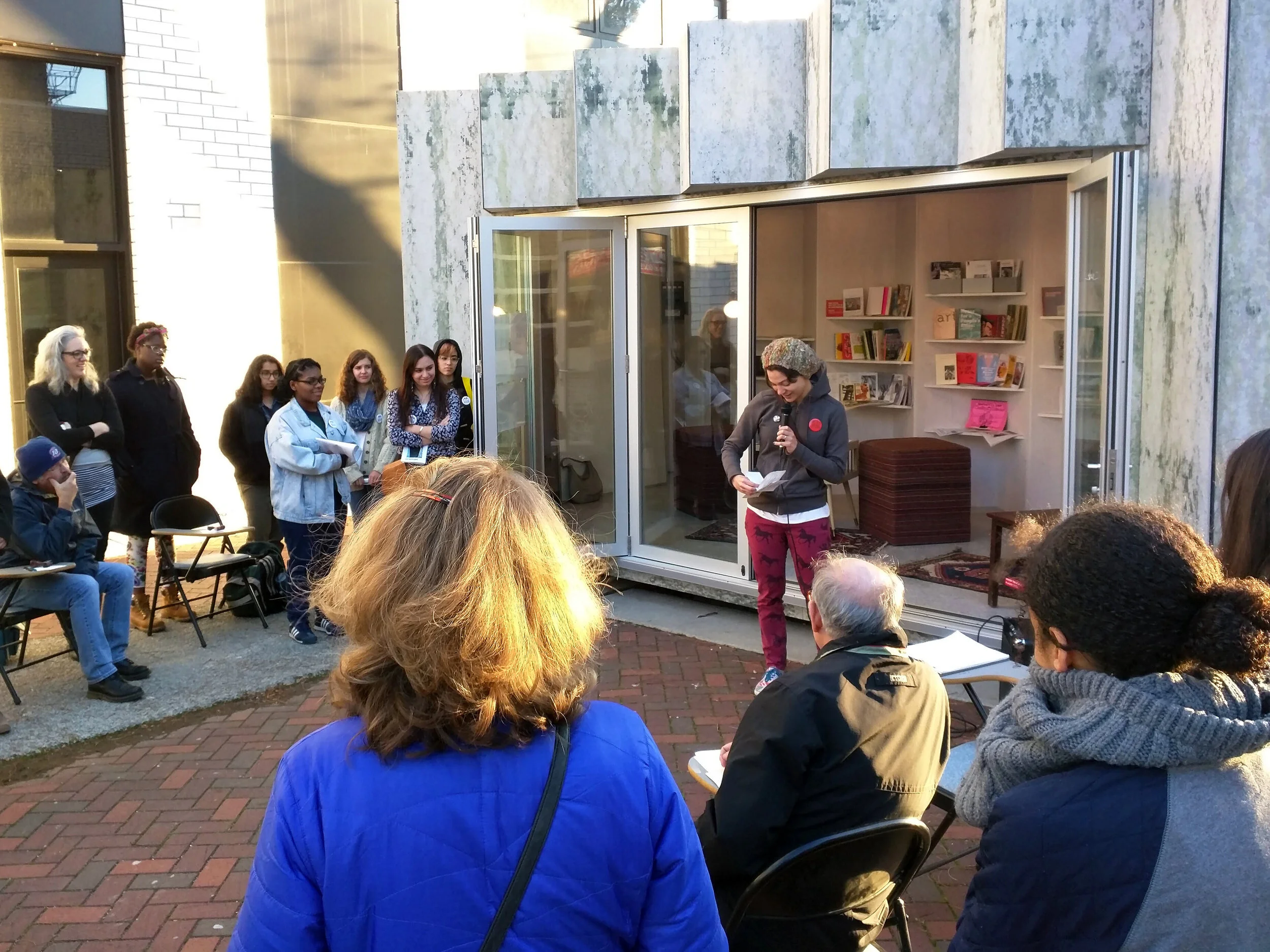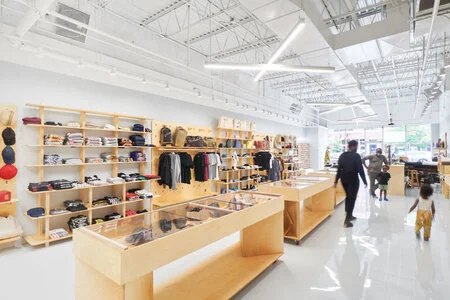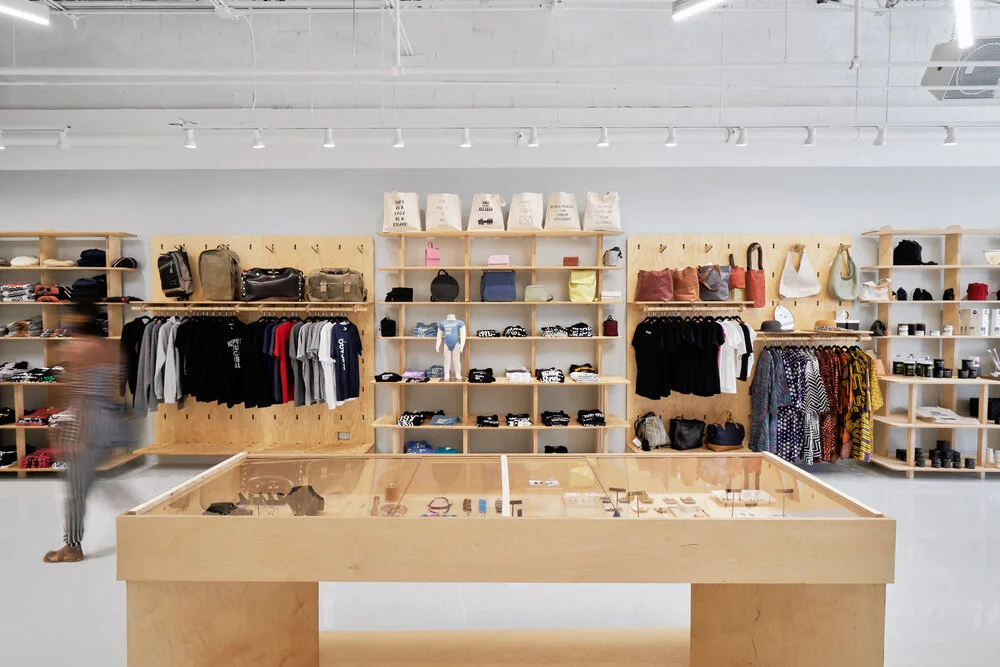Economic Opportunity
Economic opportunity has been missing in under-resourced neighborhoods across the country. Equitable development creates new assets and provides meaningful economic benefits to the residents of under-resourced neighborhoods, which necessarily brings about healthier, more cohesive, and interconnected environments. It also generates community wealth and increases community ownership of community assets. Another key characteristic is the fostering of local businesses. Small, locally-owned businesses have community-based shareholders since all the money spent goes to people in the neighborhood. Local investment and local hiring make these businesses community-contained economic entities and create a virtuous cycle of neighborhood-based wealth. This can help build financial equity and distribute wealth.
Tools and case studies
Developing Incubators
An incubator is an entity (usually a non-profit organization) that operates with the goal of helping small businesses become independent and successful. They offer a wide range of resources to growing businesses including physical workspaces, business mentoring, accounting assistance, connections to investors, and legal counsel. The creation of more incubators in under-resourced neighborhoods could allow for a greater degree of entrepreneurship and community-based wealth.
Photographer: Jair Pinedo
Sunshine Enterprises, Chicago, IL. Sunshine Enterprises is a non-profit business incubator and coworking space. Their mission is to empower “high potential entrepreneurs living in under-resourced neighborhoods to grow their businesses and build their communities.” Sunshine fosters economically viable communities through training, coaching, and connecting entrepreneurs with industry experts. They offer two different hands-on business training and mentoring opportunities and currently serve hundreds of entrepreneurs throughout the Chicagoland area out of three geographic business hubs. Their vision is to establish five community-based hubs catalyzing free enterprise in Chicago’s under-resourced neighborhoods.
Raising Micro capital
Difficulty in acquiring the initial funds needed to get a loan and start development is a significant hurdle to overcome. Pooling small amounts of capital is one potential way to overcome this barrier to entry, and going in on a development with others lowers everybody’s risk. Money can be pooled with family and friends who are linked by their interpersonal ties. Microlending -- small loans, often through a peer-to-peer network -- is becoming an increasingly useful and available tool for individuals who cannot obtain loans from a traditional bank.
Photographer: Grameen Photo Archive
Grameen Bank, Dhaka, Bangladesh. Grameen Bank was founded by Muhammad Yunus, a professor a the University of Chittagong, to provide poor, rural Bangladeshis with collateral-free microloans. The relatively simple idea has exploded, with 8.4 million borrowers as of 2011, 97% of whom are women. The loans and flexible practices have helped millions with business and agriculture.
Creating opportunity for popups
Pop-up shops are temporary retail spaces that can house a wide range of businesses. By allocating space for pop-up shops, developers create a space for locals to visit frequently, forging social connections and a sense of place. Pop-up stores also offer a lower barrier to entry for entrepreneurs than permanent storefronts, often serving as a way for businesses to test out their product, gain name recognition, and get their foot in the door.
Architect: Latent Design
Photographer: Boombox
Boombox, Chicago, IL. Boombox is a prefabricated, pop-up storefront constructed from upcycled shipping containers available for short-term rental. Vendors can customize a unique space and marketing opportunity within the existing infrastructure of the unit. This new platform for community and economic development allows local entrepreneurs to innovate at a small scale through retail, cultural, community, and marketing opportunities. Boombox’s pop-up marketplace transforms unused urban spaces and helps reinvigorate disinvested neighborhoods. Located in prime pedestrian-oriented plazas, vacant lots can be repurposed to create commercial corridors that support community groups and local businesses.
creating space for informal or formal food saleS
Inadequate access to healthy foods is a significant barrier to nutritional health among individuals in low-income communities. Restaurants and grocery stores play a critical role in food access and they often act as anchors in a neighborhood. In particular, locally-owned restaurants and supermarkets are uniquely positioned to offer employment opportunities and provide workforce development within the community. Restaurants have the potential to become meeting places for locals as well as sought-after culinary destinations for tourists and visitors. Opportunities for food trucks and spaces for rotating pop-up restaurants can encourage entrepreneurship. All of these businesses keep revenue circulating throughout the neighborhood. Food-related businesses can also operate as an expression of cultural identity.
Photographer: 61st Street Farmers Market
61st Street Farmers Market, Chicago, IL The Experimental Station launched the 61st Street Farmers Market in May 2008 after identifying the Woodlawn neighborhood as a food desert. The lack of access to fresh foods in the neighborhood is the result of a 50-year history of economic divestment. The 61 Street Farmers Market’s goal is to create a food oasis in the middle of a food desert, uplift and highlight local regional producers (specifically those of African American descent), and create a space for community education around nutrition. The market has become the leader in Illinois in the acceptance and promotion of LINK (or ‘SNAP’ or ‘food stamps’) at farmers’ markets and now accepts more food stamp sales than any other Illinois farmers market. In addition, every Saturday you can attend a chef demonstration and stop by the Market School tent to learn about responsible agriculture, health and nutrition, environmental preservation, gardening, and much more.
encouraging locally-owned businesses
A strong local economy of small businesses keeps money in the community rather than allowing it to flow out to large corporations. Local businesses foster neighborhood pride and autonomy, since business decisions are made by people who understand and care about their neighbors. The link between business owners and their neighbors also increases the likelihood of hiring locally, which keeps even more money in the neighborhood. Developers should prioritize local small businesses for commercial spaces, hire local for construction work, and incentivize entrepreneurship with rent reductions or other benefits
Architect: Future Firm
Photographer: The Silver Room
The Silver Room, Chicago, IL. The Silver Room is a store and event space in the Hyde Park neighborhood of Chicago, carrying an “eclectic mix of locally- and internationally-sourced handmade jewelry, accessories, clothing, artwork, home goods and a curated selection of music.” They place an emphasis on building relationships with patrons, and use the store for book launches, live DJ sets, tango lessons, guest speakers, and more. They host an annual block party featuring local up-and-coming artists which can draw up to 50,000 people.
encouraging worker-owned co-ops
Worker-owned cooperatives provide an alternative model to the traditional business structure of owners and employees. In cooperatives, employees own at least the majority of the company and business decisions are made democratically by employees. This allows workers to reap the rewards of their work and build wealth through their business while sharing risks with fellow employees. Cooperatives keep shareholders local, bring money to their neighborhoods, and remain responsible to their communities.
Photographer: Evergreen Cooperatives
Green City Growers | Evergreen Cooperatives, Cleveland, OH. The Evergreen Cooperative Initiative began with the intention of creating living-wage jobs in several low-income neighborhoods in Cleveland. Evergreen currently operates a commercial laundry facility, a green energy contractor service, and a large urban greenhouse (“the largest food-production greenhouse in a core urban area in the United States”). They remain an important model for “healing neglected post-industrial economies in the American heartland” and are part of a “larger experiment in alternative wealth-building and wealth-sharing models.
Building high-quality workforce housing
It is increasingly difficult for middle-income workers to buy or rent housing in the areas in which they work. This is because of a limited supply of affordable housing and stagnating wages that are not increasing at the same rate as costs of living. This causes workers to move to the outer parts of the city, resulting in longer commute times and higher amounts of traffic. In order to fight this trend, quality housing in reasonable proximity to the workplace needs to be built.
Architect: Civic Projects
Photographer: Civic Projects
Cheerful Credit, Chicago IL. Civic Projects has designed and is renovating the Furniture Store apartments in the historic Bronzeville neighborhood. The project consists of returning ten abandoned 3-bedroom apartments to productive use, 75% of which will accept Section 8 housing vouchers and be affordable housing for tenants. The furniture store on the ground level has been run by the same family for generations and will remain in business. The work has including gutting the upper two levels in order to design and reconfigure these units. Each apartment will include wood floors, open kitchens with granite countertops, and exposed brick walls. Civic will uncover and restore the existing “ghost signs,” advertisements painted in the 1920s on the interior walls that were once part of the building’s exterior. Civic has also developed a conceptual design for the adjacent vacant lot that involves developing three affordable apartments.





















